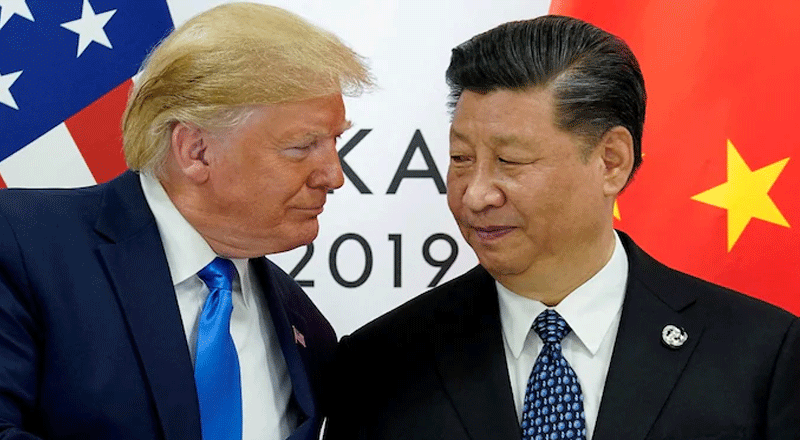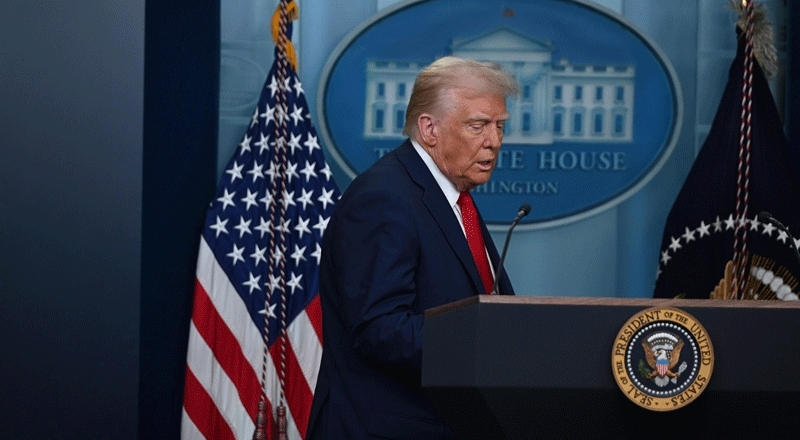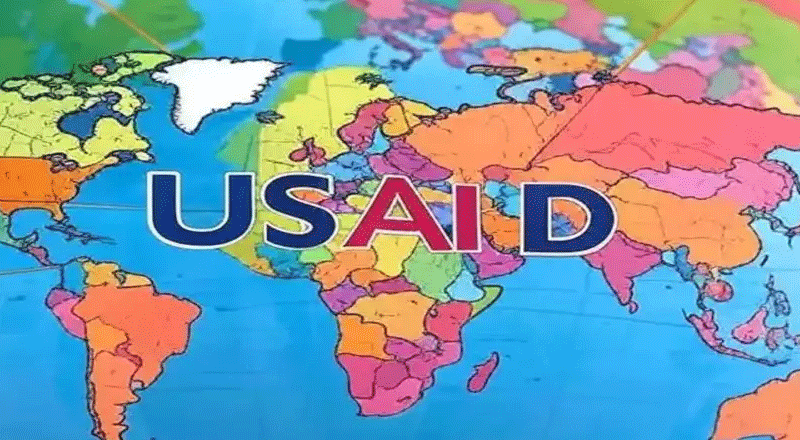Trump’s Tariff Shock and the Rising Trade War
President Donald Trump’s aggressive tariff strategy has sent shockwaves through global trade, pushing the world’s two largest economies into a renewed trade war. By imposing an additional 10% tariff on all Chinese exports to the U.S., Trump has further escalated economic tensions. His decision, which he claims is aimed at combating illicit drug flow, has sparked an immediate and forceful response from Beijing.
China swiftly retaliated by slapping tariffs on U.S. goods, marking a significant escalation in the trade conflict. With the world economy already under strain, this clash between Washington and Beijing threatens global supply chains, market stability, and diplomatic relations. Meanwhile, Trump has temporarily paused tariffs on Mexico and Canada, securing border enforcement commitments. However, with China’s countermeasures now in place, the global trade landscape has entered a volatile phase.
China’s Retaliation: Tariffs and Trade Barriers
In response to Trump’s new tariffs, China’s Finance Ministry announced an immediate imposition of levies on U.S. goods. A 15% tariff was placed on American coal and liquefied natural gas (LNG), while a 10% levy was applied to crude oil, farm equipment, and some automobiles. These new tariffs, set to take effect on February 10, signal Beijing’s intent to hit back hard at U.S. trade policies.
Additionally, China has initiated an anti-monopoly investigation into Alphabet Inc.’s Google and expanded its “unreliable entities list” to include U.S. firms PVH Corp (the parent company of Calvin Klein) and biotechnology giant Illumina. These moves further strain trade relations and create additional hurdles for American businesses operating in China.
Moreover, China has imposed export controls on critical rare earth minerals such as tungsten, tellurium, ruthenium, and molybdenum, which are essential for advanced technologies and clean energy initiatives. As China dominates the global supply of these resources, this decision could have far-reaching consequences for industries worldwide.
Neighbourly Deals: Temporary Relief for Mexico and Canada
While China faces the brunt of Trump’s trade war, Mexico and Canada have received a temporary reprieve. Trump suspended the planned 25% tariffs on these neighboring countries for 30 days, citing agreements to bolster border security and crack down on organized crime, illegal immigration, and drug trafficking.
In response, Canada pledged to deploy advanced technology and additional personnel along its U.S. border while launching new efforts to combat money laundering and fentanyl smuggling. Similarly, Mexico agreed to station 10,000 National Guard members at its northern border to curb illegal migration and drug flow.
These agreements brought relief to industries in both Canada and Mexico, where businesses had feared supply chain disruptions. Canadian trade groups expressed optimism, with Chris Davison, a leader in the canola industry, stating, “We have a highly integrated industry that benefits both countries.”
The Global Fallout and Possible Outcomes
Trump’s trade battle is far from over. While he has hinted that Britain might be spared tariffs, he has also suggested that the European Union could be his next target. EU leaders have warned that they are prepared to retaliate but remain open to negotiation. With the U.S. being the EU’s largest trade and investment partner, another trade conflict could have devastating economic repercussions.
China’s countermeasures, particularly its rare earth export controls, could pose long-term challenges for American industries reliant on these essential materials. If tensions continue to escalate, global markets could experience instability, potentially leading to a broader economic downturn.
The Uncertain Road Ahead
With China and the U.S. locked in an escalating trade war, the global economy faces growing uncertainty. If Beijing continues to retaliate and Trump follows through on threats against the EU, international trade could become increasingly fragmented. Businesses, consumers, and economies worldwide are bracing for the impact of these aggressive policies.
As China strengthens its countermeasures and other nations react, the ultimate outcome of this trade war remains unpredictable. The world watches closely as economic superpowers clash, knowing that the consequences of this confrontation could shape the global economy for years to come.
(With inputs from agencies)





